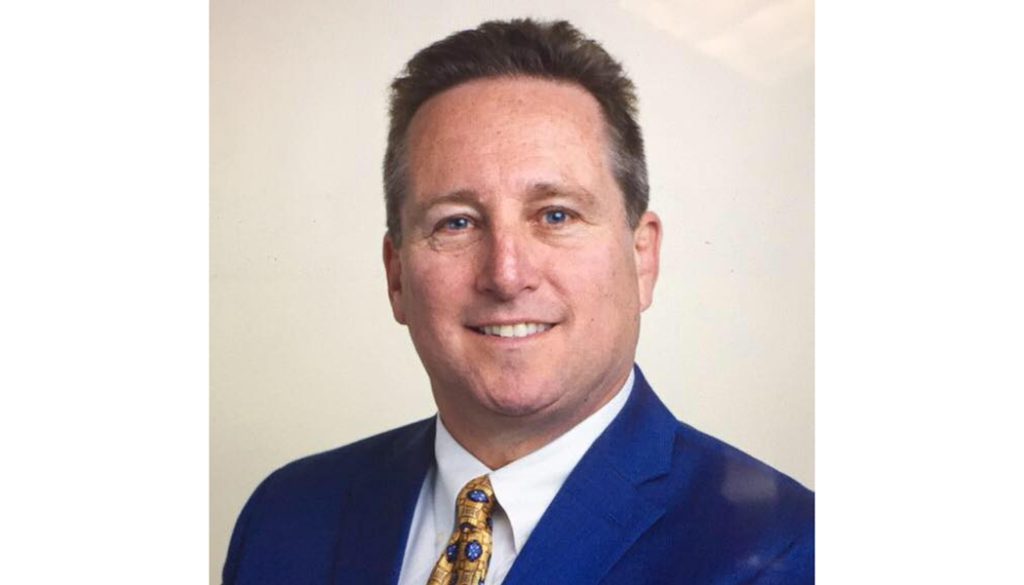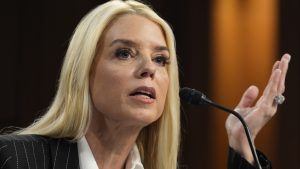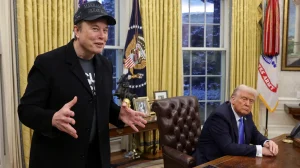Political & Election Law in California
An Interview with Bradley W. Hertz of Law Offices of Bradley W. Hertz
Having specialized in political and election law and litigation throughout California for the past 35 years, I am extremely excited to have opened my own firm, the Law Offices of Bradley W. Hertz. My law practice focuses on campaigns, elections, governmental ethics, lobbying, and litigation, and I am committed to helping my clients achieve their political, legislative, and other goals.
I represent clients in connection with their efforts to navigate the web of legal requirements that apply to those involved in the political and election process. I also represent clients in state and federal trial and appellate courts in matters involving initiatives, referenda, recalls, ballot access, election contests, voter pamphlets, campaign finance, and First Amendment issues.
I have been a Partner at the Sutton Law Firm, Of Counsel to Reed & Davidson, and an Associate at Buchalter. I represent clients in Federal Election Commission, Fair Political Practices Commission and local enforcement agency actions. I taught Election Law and Civil Procedure courses at Chapman University School of Law and served as a member of the Los Angeles County Superior Court mediation panel.
I received my undergraduate degrees in Political Science and U.S. History from Brown University and my law degree from Georgetown University Law Center. Before practicing law, I worked as a political consultant, served as a delegate to a national Presidential Convention, and was a statewide communications director for a Presidential campaign.
I also served as an aide to a United States Senator in Washington, D.C. and Los Angeles, and was President of the California Political Attorneys Association. I am a frequent lecturer and author in the areas of political and election law and a member of several non-profit boards. My wife Laura is a mortgage banker, we have three adult children, and we live in Woodland Hills, California.
What is political and election law, and what is the role of an attorney who practices this kind of law?
Political and election law involves Compliance (in which I help clients comply with the complex array of laws and regulations governing politics and elections), and Litigation (in which I take others to task for violating applicable laws in this arena, or defend those being accused of violating the law).
The Compliance piece involves Campaign and Election Law (advising clients in connection with PACs, ballot measures, campaign contributions, independent expenditures, campaign finance, and more); Governmental Ethics Law (advising government officials and employees, and those who interact with them, in connection with conflicts of interest, Government Code sections 1090 & 84308, revolving door and gift restrictions, and other ethics law matters; and Lobbying Law (advising clients in connection with lobbying registration and reporting on the local, state and federal levels).
The Litigation piece involves representing voters, candidates, committees, citizens’ groups, government agencies, and others in political and election-related litigation and administrative law matters. Litigation can involve initiatives, referenda, recalls, ballot access, ballot designations, candidate statements, ballot questions, election contests, ethics agency enforcement, and related matters. Some of these matters are “quick and dirty,” as they must be resolved in a matter of weeks due to a rapidly-approaching election. Others are more traditional litigation, with motions, discovery, trials, and appeals.
In short, political and election lawyers work to keep (or get) our clients out of trouble. Or, if our clients’ opponents have broken the law, we work to hold them accountable. This often takes the form of lawsuits seeking writs of mandate, injunctions and/or declaratory relief, or serving as a “private attorney general” to pursue wrongdoers as the state might do.
What are some of the more interesting matters you’ve worked on?
I have been extremely fortunate to have been able to work on matters that I believe have made positive differences in people’s lives throughout California and beyond. These legal projects have included securing economic viability for Indian Tribes; seeking to remove the Confederate Seal from the Mississippi State Flag; working to secure rights for terminally ill patients to be able to have death with dignity; religious freedom; and reforming workers’ compensation laws. My cases have also addressed responsible real estate development and housing; term limits; public health; lower prescription drug prices; merit-based education; transportation; marriage equality; compensation for public officials; the building of professional football and soccer stadiums and basketball arenas; cannabis; the gig economy; securing funds for public parks and libraries; and so much more.
I have also protected voters from being subjected to false and misleading information on initiative, referendum, and recall petitions; protected voters from being misled about candidates; secured ballot access for candidates who otherwise would not have been on the ballot; and held government accountable to the people. I have worked to enforce the Federal Election Campaign Act, Political Reform Act, Public Records Act, Ralph M. Brown Act, the Anti-SLAPP statute, and other political and election laws. Many of the matters I have handled have ended up being the law of the land via the legislative or judicial process. I am particularly proud that many of my litigation matters have created new law in California and are embodied in the published decisions of the California Supreme Court and Courts of Appeal.
What guidance would you give to those seeking to involve themselves in the worlds of politics and elections?
First, I would say “Look before you leap.”
There are innumerable traps for the unwary, and even with the wide latitude afforded to First Amendment speech, politics is one of the most heavily regulated fields around.
Clients who jump into the process without retaining an experienced lawyer, hiring a knowledgeable treasurer, and finding a good political consultant often live to regret it. “You don’t know what you don’t know,” and many of the applicable laws are counterintuitive. For example, a person might not think of himself as a lobbyist, but the definitions and rules are much broader than one might expect, and he can get in trouble for failing to register as a lobbyist and file various disclosure forms.
Other traps for the unwary are whether and when one must officially form a political committee by filing the necessary paperwork, opening a bank account, etc. And others don’t realize that advancing or reimbursing payments for political contributions can constitute illegal political “money laundering.” Even more particular are the detailed disclaimers required on campaign communications or the frequent financial disclosures required by those involving themselves in the flow of money in the political process. And avoiding conflicts of interest is important, and sometimes more challenging than one might expect. In these contexts, “an ounce of prevention is worth a pound of cure” is not just a tired cliché; it’s really something to abide by.
What are some of the cutting edge issues in the world of politics and elections?
Artificial intelligence is certainly top of mind, as AI-generated content is having a huge impact on the electoral process. With “deepfakes” and generative AI, it is becoming increasingly difficult to determine what is real. If AI can literally put words in candidates’ mouths and exploit their likenesses in social media and beyond, this presents a real threat to the democratic process. Operating in an arena protected by the First Amendment, a delicate balance must be found to allow for free speech but also provide voters with the ability to separate fact from fiction.
The law is generally slow to respond to changes in technology, and so we all need to fasten our seatbelts because it’s going to be a bumpy ride.
Election integrity and trust in the democratic system are at a crucial stage right now. While close elections are not new (think Bush v. Gore in 2000), 2020 saw a new level of distrust and frustration that must be addressed. Protecting voters’ rights, increasing transparency in the process, ensuring that technology works for us and not against us, and guarding against foreign intervention in our elections are just a few of the issues that we are facing as the 2024 elections are taking place. Vote-by-mail elections, “ballot harvesting” (third parties’ submission of voted ballots), voter identification laws, voter intimidation, the electoral college, and so many other issues need to be addressed as the process moves forward.
The balance of power between our three branches of government is also in a precarious position.
Our Constitution envisions a delicate interplay between the Legislative, Executive, and Judicial branches, and with divisive issues such as abortion, gun control, Presidential ballot access and immunity from prosecution, and transgender rights – to name a few – our chosen form of national governance is going through a major stress test. Even so, I don’t believe it’s time to proclaim that “the sky is falling.” The democratic process is a messy one but it has served us well. As Winston Churchill is to have said – Democracy is the worst form of government, except for all the others.
What caused you to become interested in politics and to work in this area of the law?
I was born just three weeks before President John F. Kennedy was assassinated, and my parents always encouraged me to be involved in my community and to value and participate in our democratic process. They took very seriously President Kennedy’s Inaugural Address in which he said “Ask not what your country can do for you – Ask what you can do for your country.” My mother, who was an artist and photographer, and my father, who was a surgeon, sculptor, and author, imbued in my brother and me a philosophy of “noblesse oblige,” or giving back.
As early as I can remember, my parents took me to the polls with them to watch them vote and brought me to various political rallies. They took me to City Hall, the State Capitol, and Washington, D.C., and I always remember following politics, being involved in student government, and dealing with public policy issues. After law school, I found a way to combine my love of politics with my interest in the law by developing an expertise in political and election law. And I’ve never regretted it for one moment.
What do you like most about your job?
I enjoy making a positive difference in my clients’ lives and having an impact on important public policy issues. Whether it’s writing an initiative that becomes law, litigating an important constitutional issue, or helping clients achieve their public policy goals, I feel very fortunate to be able to do what I do. No two days are ever the same, and my clients are interesting and involved citizens who want to improve their communities and make the world a better place.
My colleagues are great as well. Those who practice in this area of the law (many of whom are members of the “California Political Attorneys Association”) have a thirst for truth, justice, and the American Way (as Superman put it). We can be zealous advocates for our clients and engage in spirited litigation against each other, but when the case is over, we can also unwind and enjoy a beer together. I am thankful to the many attorneys who paved the way and helped create the legal field in which I am blessed to be able to practice.
Bradley W. Hertz
Law Offices of Bradley W. Hertz
22815 Ventura Blvd., # 405, Los Angeles, CA 91364
Tel: 818/593-2949
Email: brad@bradleyhertzlaw.com
www.bradleyhertzlaw.com
Published by: Lawyer Monthly - 1st May, 2024
www.lawyer-monthly.com




















